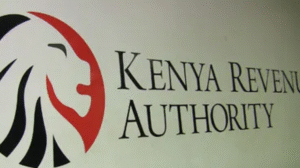In the corridors of corporate and governmental interactions, where power and wealth intersect, corruption can often taint processes that should be transparent.
One such example is the case involving Shikun & Binui Ltd., Israel’s largest construction firm, which was implicated in a multi-billion shilling bribery scandal in Kenya.
This scandal highlighted the complex and often hidden mechanisms behind large-scale infrastructure projects, especially in regions where governance is weak and oversight is porous.
According to Kenyan and Israeli authorities, Shikun & Binui Ltd. engaged in an elaborate bribery scheme to secure road contracts in Kenya worth billions of shillings.
The construction giant, which was once owned by billionaire Shari Arison, Israel’s richest woman, allegedly orchestrated this scheme between 2008 and 2016 by bribing Kenyan officials to win lucrative tenders.
The bribery involved Sh15 billion, a staggering sum that raised concerns about the extent to which corruption had permeated the tendering process in Kenya.
Investigations revealed that the bribes were paid directly by the company or through its Swiss subsidiary, AG SBI, as part of a broader strategy to inflate profits by securing construction deals across Africa.
The investigation into Shikun & Binui’s operations began in February 2018, led by Israel’s Lahav 443 Unit, which specializes in fraud and corruption cases.
After a year-long inquiry, the police amassed substantial evidence pointing to the company’s involvement in systematic bribery.
In May 2019, Lahav 443 announced that there was enough evidence to charge Shikun & Binui and several senior employees with bribery-related offences.
The allegations were serious, and the investigation spanned multiple countries, requiring extensive coordination between Israeli and Kenyan authorities.
The bribes were reportedly paid to public officials in Africa, primarily in Kenya, in exchange for awarding road construction contracts.
This was no small operation; the scheme involved meticulous planning, and the investigation was both comprehensive and far-reaching.
Police raided the company’s offices, seizing documents, computers, and other materials to piece together the extent of the corruption.
Over 50 suspects were questioned, and testimonies from 34 witnesses were taken, adding weight to the charges.
In Kenya, the case triggered a parallel investigation by the anti-corruption authority, which led to the arrest of 19 public officials.
These officials were believed to have accepted bribes from Shikun & Binui to manipulate tender outcomes in the company’s favor.
The case underscored the pervasive nature of corruption in public procurement processes and the deep connections between corporate entities and public officials.
Shari Arison, who had sold her controlling stake in Shikun & Binui in 2018, found herself at the center of the investigation.
She underwent a grueling nine-hour police interrogation regarding her involvement in the bribery scheme.
Although she had sold her stake to US-Israeli investor Naty Saidoff for $307 million, the deal was reportedly undervalued by 14%, a reflection of the market’s concerns over the ongoing bribery investigation.
Ms. Arison, however, maintained that the sale was part of a strategy to diversify her investments and had no relation to the corruption allegations.
Despite the intense scrutiny, Ms. Arison was never indicted.
After a thorough review, the State Attorney’s Office in Israel concluded in 2021 that there was no sufficient evidence to prove she had knowledge of the bribery activities conducted by her company.
This decision sparked debate, with critics questioning how such a massive operation could have taken place without the owner’s knowledge.
Nonetheless, the company itself and several executives were found guilty of the offences, and Shikun & Binui faced severe legal consequences.
In an attempt to resolve the matter, the company entered into negotiations with the Israeli State Attorney’s office to settle the charges.
The proposed deal involved Shikun & Binui paying a hefty fine of $54 million in exchange for the withdrawal of the bribery charges.
While this settlement would allow the company to avoid a prolonged legal battle, it also raised concerns about whether such financial penalties truly serve as a deterrent to corporate corruption on such a grand scale.
This case serves as a stark reminder of the challenges that countries like Kenya face in combating corruption, especially when powerful international companies are involved.
It highlights the need for stronger enforcement mechanisms and greater transparency in public procurement processes to prevent such schemes from undermining economic development and eroding public trust.





















Add Comment